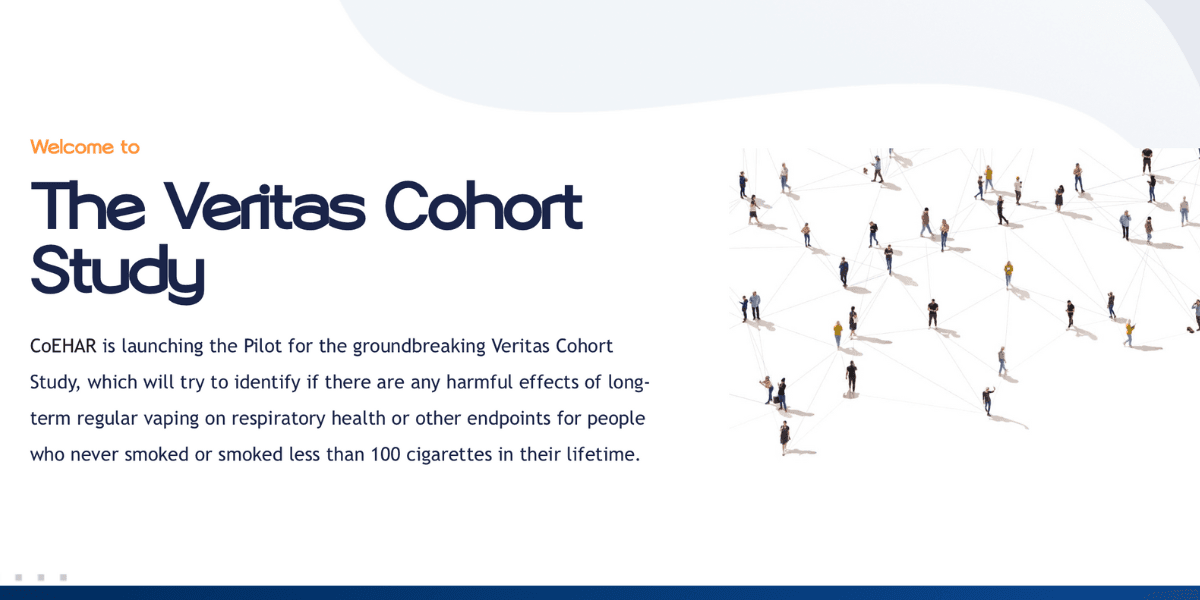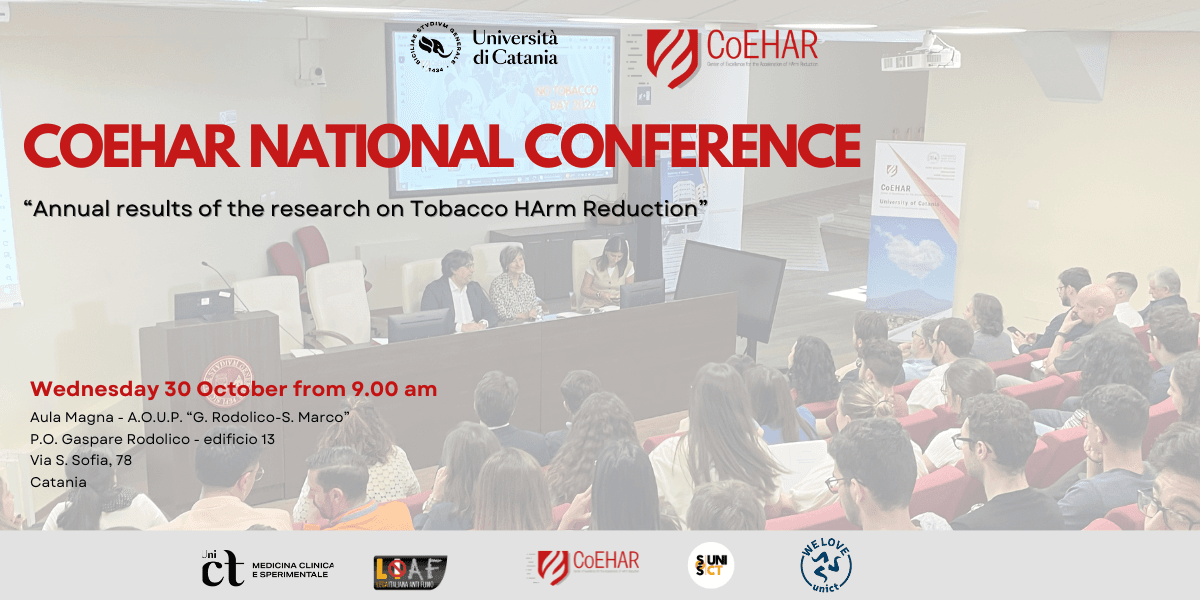An international research group is preparing to launch a ground-breaking project in the harm reduction field called the VERITAS study. Researchers from the Center of Excellence for the Acceleration of Harm Reduction (CoEHAR), along with colleagues from six global regions (Africa and the Middle East, North America, Latin America and South America, Asia-Pacific area, Western and Eastern Europe), have recruited (on its first wave) a unique cohort of 500 people who vape without an established smoking history, and 260 people as controls, to monitor the respiratory effects of nicotine vaping.
PROTOCOL: https://www.researchprotocols.org/2024/1/e54236
One of the main objections of many public health authorities regarding the adoption of harm reduction strategies within national anti-smoking policies is the lack of long-term knowledge about the effects of exclusive e-cigarette use. Study participants often have a history of combustible cigarette smoking, which does not allow an absolute quantification of the harm caused by electronic devices.
Being able to determine the effects of exclusive use of nicotine vaping products in individuals without an established smoking history could provide key insights into assessing the actual long-term harm of such devices and provide necessary responses to health policies that still adopt a precautionary approach to harm reduction strategies.
Prof. Riccardo Polosa, CoEHAR Founder, explained that: “In a small study of daily EC users who had never smoked, no significant changes were reported in any of the health parameters considered (blood pressure, lung function, or negative respiratory effects) resulting from the use of electronic nicotine delivery systems. However, structured studies conducted on a larger sample of exclusive vapers are needed to confirm or refute these results. That’s why the VERITAS project is an ambitious, unique project both in terms of methodology and sample size. This way, we could really open a constructive dialogue with public health authorities based on real-world data.”
Jeffrey Zamora, President of Asovape Costa Rica, President of ARDT Iberoamerica and Veritas’s project leader, said: “We are using an innovative platform with a 2-step verification process where people will enroll in the study. After registering on the website, participants will be asked to provide information about the devices used, frequency of use, age of initiation, flavor preferences, motivations, and any cigarette consumption or experimentation. They will also complete the Respiratory Symptom Experience Scale, a validated scale that asks subjects to rate the frequency with which they had experienced any respiratory symptoms”.
The innovative strength of the VERITAS project lies in the creation of a specific figure, the AMBASSADOR, who pursues recruitment through social media channels, WhatsApp groups, Google email groups, posters in vape shops and universities, recommendations from other participants and collaboration with local vape shop owners in each of the six geopolitical world regions. The Ambassadors will collect data and information and will be the main point of contact for the project leader, facilitating coordination on a large scale.
VERITAS is an ongoing project and the results will be published this summer. The study can provide an example for future studies, and the results will give some of the necessary answers to implement public health policies that still question the potential harm of nicotine vaping products. Furthermore, the involvement of participants worldwide will provide valuable data for evaluating consumption patterns in different geographical areas. This study will open a new frontier in research applied to harm reduction because of its methodologies of recruitment, collecting, and monitoring data.
To have more information about the project, please visit the VERITAS WEBSITE.





